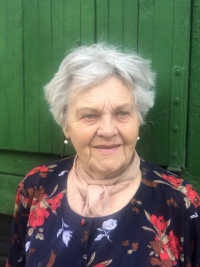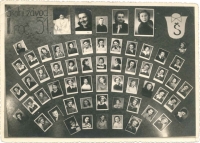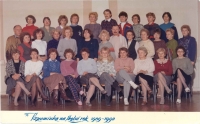When the Boy Scouts were cancelled, I cried
Antonie Hájková, née Farářová, was born in March 1935 in Jenč near Prague. During the Second World War, her father was fully deployed, and she lived with her mother at their relatives. She remembers the fear of air raids and the violent behaviour of Red Army soldiers during the liberation. After the war, little Antonia went to the Scout for two years, then it was banned. To this day, she regrets that she was unable to spend more time in the group due to the regime. She trained as a seamstress in Klatovy and later graduated in industrial clothing in Prostějov. But her lifelong dream was to teach, which eventually came true. She remembers the August occupation of 1968, which she experienced in Prague, as well as the days of the Velvet Revolution.


